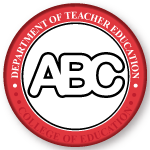Document Type
Conference Proceeding
Publication Date
10-2001
Abstract
This paper describes research on four web-based learning applications that employ a variety of assessment approaches and student tracking and data aggregation mechanisms. These applications are aimed at promoting deeper learning in web-based learning applications and courses and at facilitating a research-based, design experiment approach to prototype development and improvement. Developmental research on two of these tools, Affinity Learning and Critical Thinking, is discussed in this paper. Affinity Learning uses database-driven software to capture the teaching skill of a master teacher. Students are guided through online activities and assessments in accord with their skills and rate of learning. When a student outcome is unanticipated in the software/database, the teacher is solicited for help. In offering that help, the teacher designs a new activity and assessment that is incorporated into the environment. The Affinity environment grows from an initial state to more and more sophisticated capabilities. The Critical Thinking Tool requires students to make and justify their answers to queries about web-based instructional content. The Tools database then graphically displays all students choices, plus their rationales. Students are asked to review and rate the quality of others rationales and to modify their own as needed. Both tools provide fine-grained information on student decision-making and performance that is useful for informing improvements in design. Both also have demonstrated their ability to produce student learning and promote deep understanding of concepts and principles.
Recommended Citation
Bruning, Roger; Zygielbaum, Arthur I.; and Grandgenett, Neal, "Using Online Learning Resources to Promote Deeper Learning" (2001). Teacher Education Faculty Proceedings & Presentations. 20.
https://digitalcommons.unomaha.edu/tedfacproc/20


Comments
Bruning, R., Zygielbaum, A., Grandgenett, N. F. (2001 October). Using online learning resources to promote deeper learning. In Proceedings of the Symposium on Assessing the Quality of Online Instruction. Naval Postgraduate School, Montreal, California.